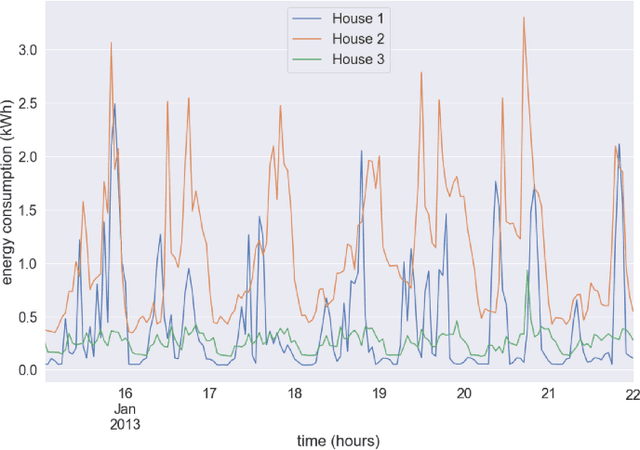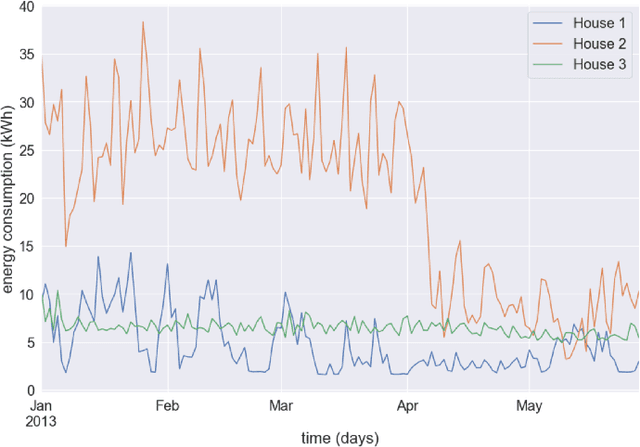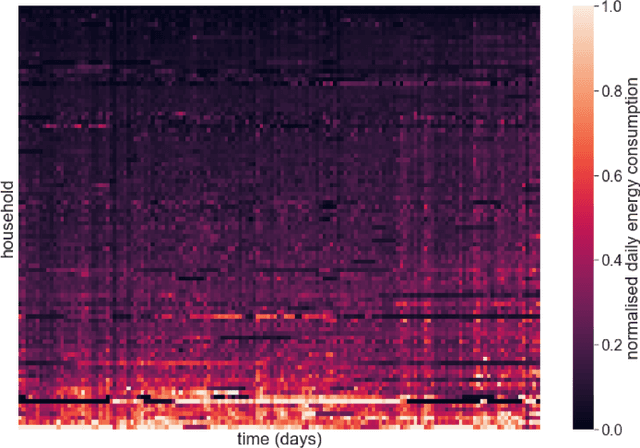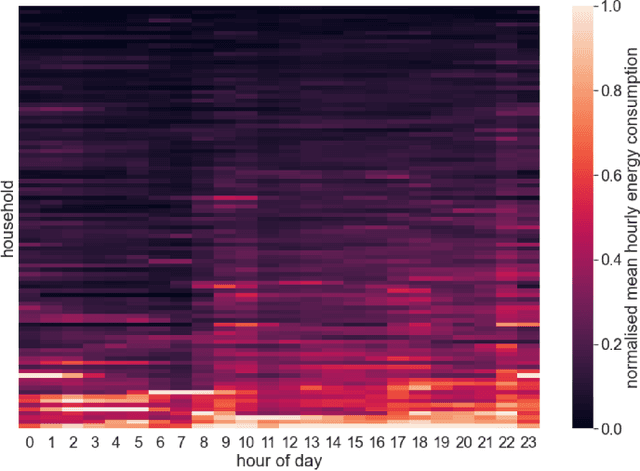Federated Learning for Short-term Residential Energy Demand Forecasting
Paper and Code
May 27, 2021



Energy demand forecasting is an essential task performed within the energy industry to help balance supply with demand and maintain a stable load on the electricity grid. As supply transitions towards less reliable renewable energy generation, smart meters will prove a vital component to aid these forecasting tasks. However, smart meter take-up is low among privacy-conscious consumers that fear intrusion upon their fine-grained consumption data. In this work we propose and explore a federated learning (FL) based approach for training forecasting models in a distributed, collaborative manner whilst retaining the privacy of the underlying data. We compare two approaches: FL, and a clustered variant, FL+HC against a non-private, centralised learning approach and a fully private, localised learning approach. Within these approaches, we measure model performance using RMSE and computational efficiency via the number of samples required to train models under each scenario. In addition, we suggest the FL strategies are followed by a personalisation step and show that model performance can be improved by doing so. We show that FL+HC followed by personalisation can achieve a $\sim$5% improvement in model performance with a $\sim$10x reduction in computation compared to localised learning. Finally we provide advice on private aggregation of predictions for building a private end-to-end energy demand forecasting application.
 Add to Chrome
Add to Chrome Add to Firefox
Add to Firefox Add to Edge
Add to Edge